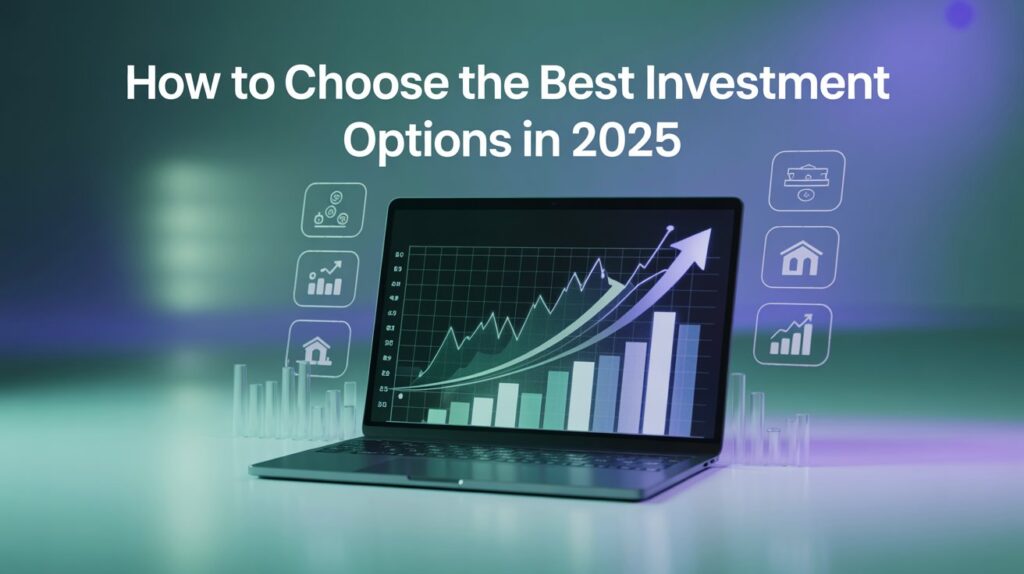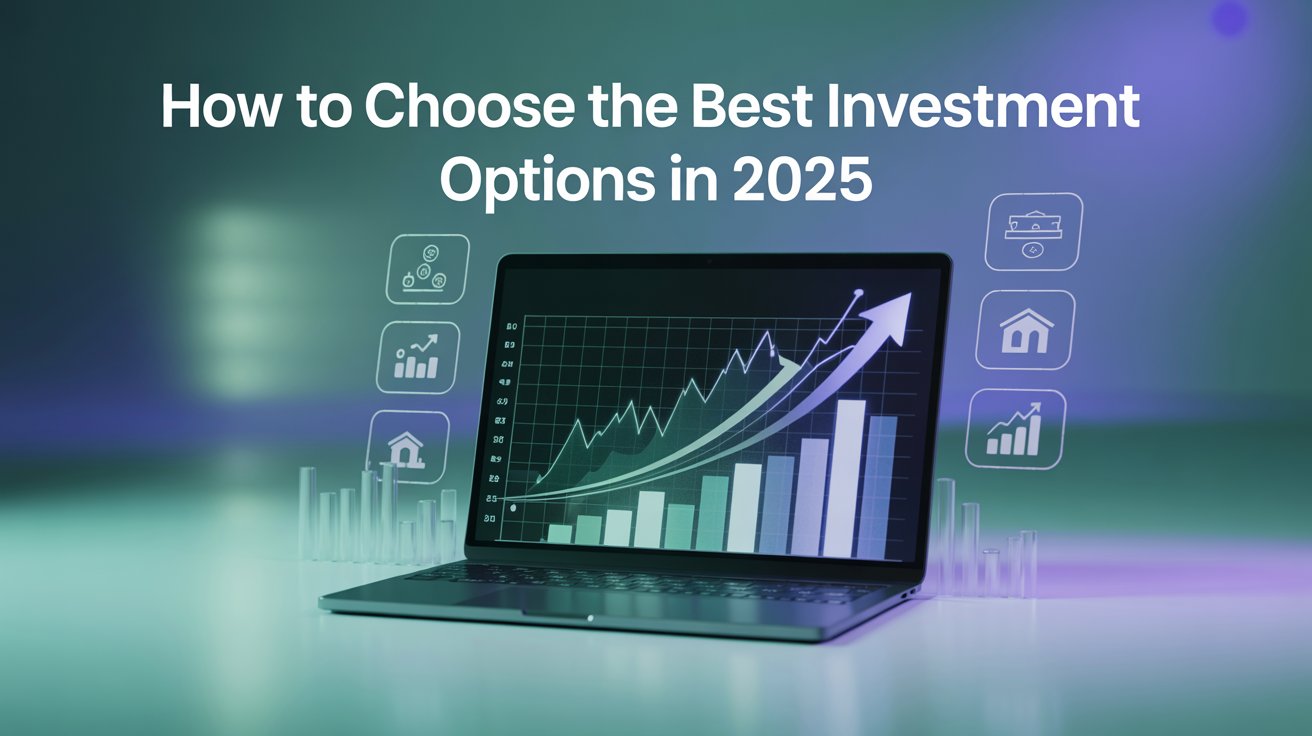As we head into 2025, the face of investment is changing, the product of economic swings, geopolitical turmoil and technological development. When it comes to selecting the investment options, there needs to be a balance which is directly based on financial goals, risk appetite and market sentiments. In this guide, I coverage a structured framework to help you decide where to invest this year.
Looking Ahead to 2025 for Investment Strategies
There are ups and downs faced by the present economy. Inflation has eased but is still a consideration, interest rates are stabilizing, and global trade picture is being transformed by geopolitical friction. Meantime, businesses in AI, renewables and real estate are seeing phenomenal growth.
Before we explore specific investments you can make in Nigeria, it is important to evaluate your financial status. Then hold any extra in an emergency fund.
Do you have high-interest debt? These are reasons why you would want to be more aggressive about investing. Once your financial foundation is in place, you can then find the best investment opportunities for 2025.

Important Considerations When Shopping for Investments
1. Risk Appetite and Time Frame
What you invest in should be a reflection of how comfortable you are with market volatility and how long you intend to remain invested. If you’re nearing retirement, safer options, such as bonds or dividend-paying stocks, may be more suitable.
Younger investors who have a longer time horizon can afford to take on more risk when it comes to growth-oriented assets, such as small-cap stocks or tech ETFs.
2. Diversification Strategy
A diversified portfolio reduces risk by investing in a wide range of asset classes. Rather than go all in on a particular stock or sector, consider a diverse range of equities, fixed income, real estate and alternative investments. For diversification without the requirement to pick individual stocks, index funds and ETFs are golden choices.
3. Economic and Market Trends
Being up to date with macroeconomic trends will assist you in taking proactive investment decisions. Take the current U.S. housing shortfall, for instance, which offers opportunities in REITs, or the AI-enabled surge in energy demand, which showcases investment possibilities in infrastructure and tech stocks.
4. Tax Efficiency
Some investments, such as Roth IRAs or municipal bonds, provide tax perks. If you are investing in a taxable account, you might think about tax-efficient funds or long-term holdings for a lower capital gains tax bill.
Best Investments to Make in 2025
1. High-Yield Savings Accounts and CDs
First things firs, high-yield savings accounts and CD rates are on the decline too.
For short-term goals and emergency funds, high-yield saving accounts and CDs are still a good option. Online banks are currently the best for conservative investors, paying competitive rates. A CD ladder, in which you stagger maturities — can offer liquidity while locking in higher returns.
2. Funds That Track the S&P 500 and Nasdaq-100 Indices
Broad market index funds like those that mirror the S&P 500 or the Nasdaq-100 are one of the foundational elements of long-term investing.
These are giving exposure to the best of breed companies with high growth potential, and come with low expense ratios making it cheap.
Over the long run, since the market has gone up historically, tracking the market (to bet on the market and invest in index funds) isn’t a bad idea.
3. Dividend Stock Funds
When you own dividend-paying stocks, you get double the benefit: you receive regular cash and you get the opportunity for price appreciation.
Businesses that pay out on chronic and consistent dividends are typically stable financially and are recommended for conservative investors as well. Dividend-centre ETFs can also make it even easier to get at these stocks.
4. REITs
Add the U.S. housing shortage and rebounding commercial real estate market, to make REITs a compelling choice. Publicly traded REITs offer the benefit of real estate ownership but without the headaches or responsibilities of managing a property, and they typically pay out more in dividends than regular stocks do.
5. Credit-Related Notes
For the Twelfth Auction Index Period, the credit-related notes which Dealers may offer for the Contracts shall be the following series of notes:Corporate and Government Bonds
Bonds bring stability to your portfolio, especially when markets are down. You’re considering currency risk, too.) For liquidity, consider short-term Treasury ETFs, or medium-term corporate bonds if you don’t mind accepting a bit more yield. Treasury Inflation-Protected Securities (TIPS) are also a good bet, if you’re still worried about inflation.
6. Foreign and Smaller-Company Value Stocks
Small-cap stocks have their upsides,1 though Many of these are volatile, but with considerable growth potential, perhaps in biotech or AI.
Shares in overseas markets, particularly in undervalued markets like Europe and emerging economies, can also offer diversification benefits in the event U.S. stocks become stretched.
7. Bitcoin ETFs and Altcoin Investment
And for those who can stomach more risk, Bitcoin ETFs are a regulated way to gain exposure to the cryptocurrency. There are also AI and automation private equity and venture capital opportunities, but they are generally more speculative.
Common Mistakes to Avoid
Market Timing – It is very difficult to time the market in the short-term. Instead, focus on investing consistently over the long run.
Overconcentration in a single asset – Do not overinvest in one stock or sector, no matter how promising it may be at the moment.
Not Paying Attention to Fees – High expense ratios on mutual funds or advisory fees can nibble away at returns over time. Where you can, turn to low-cost index funds.
Emotional Investing — Responding to swings in the market typically results in buying high and selling low. Stay the course on your investment plan.
Final Thoughts: Constructing a Durable Portfolio in 2025
The winning investment strategy in 2025 isn’t about jumping on the latest bandwagon — it’s about making sure your decisions are in line with your personal financial goals and being disciplined.
But by spreading your holdings across various asset classes and keeping a lid on costs, you can reduce market jitters and slowly grow your wealth.
And regardless of whether you’re a rookie or a veteran, the goal remains the same: Stay informed, be patient and adjust the strategy as necessary. And if you don’t know where to begin, consider speaking to a financial advisor to receive customized advice suited to your own situation.
Investing in 2025 has no shortage of opportunities for those who come to it with a bit of thought. Plan now, For financial success in future You have got your answer through astrology.

